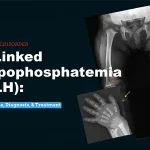Colorectal cancer (CRC) is one of the most common malignancies across the world. When cancer cells progress beyond the colon or rectum into distant organs, mainly the liver or lungs, it’s known as metastatic colorectal cancer (mCRC). Approximately 20 to 25% of patients present with metastases at diagnosis, and up to half will develop metastatic disease during their treatment course. This highlights the need for effective treatments like Elunate in India.
What is mCRC?
The development of CRC starts as a benign polyp in the colon or rectum lining. Over time, genetic mutations—often in APC, KRAS, or TP53—allow those polyps to develop into more aggressive tumors. In the case of mCRC, malignant cells infiltrate blood or lymphatic vessels, causing secondary cancers in other tissues such as the liver. The ability to treat mCRC is far more difficult due to this spread, forcing a change in the goal from complete eradication to managing the disease over a long period.
Risk Factors and Early Signs:
Important risk factors for CRC include:
- Age & Family History: The risk increases significantly after 50 years of age and with a first-degree relative with CRC.
- Lifestyle: Increased risk is associated with diets high in red and processed meat, obesity, cigarette smoking, and heavy alcohol consumption.
- Inflammatory Bowel Disease: Cancer risk is heightened due to the chronic inflammation caused by ulcerative colitis and Crohn’s disease.
Early signs of CRC—bleeding, changing bowel movements, and losing weight for no reason—often look like less serious health issues. The following symptoms may appear after metastasis:
- Pain or feeling full in the upper right quadrant (from liver involvement)
- Coughing or shortness of breath (if the lungs are affected)
- Fatigue, anemia, and loss of appetite
Evaluating any persistent gastrointestinal or systemic symptoms promptly is essential for early detection of mCRC.
Diagnosis and Staging:
These steps confirm the diagnosis of mCRC:
- Colonoscopy with biopsy to check for cancer
- Cross-sectional imaging (CT or MRI) to evaluate for metastatic spread
- Molecular profiling (KRAS, NRAS, BRAF, MSI) to facilitate precision medicine
- TNM staging with distant metastases classified as stage IV
Prognosis is improved through molecular subtyping and alters the management strategies—patients with RAS wild-type tumors can be treated with EGFR inhibitors for more favorable outcomes, for example.
Modern Management Strategies:
Effective mCRC care combines systemic therapy, local interventions, and supportive care.
- Systemic Chemotherapy: Mainstay regimens combine fluoropyrimidines (5-FU or capecitabine) with oxaliplatin (FOLFOX) or irinotecan (FOLFIRI). These help delay progression and shrink metastases, often along with biologic agents.
- Targeted Therapy: The use of specific anti-VEGF antibodies (bevacizumab), and anti-EGFR cetuximab and panitumumab has improved survival when used alongside chemotherapy for mCRC patients by targeting certain pathways.
- Immunotherapy: Unlike other cancer treatments, immunotherapies like pembrolizumab and nivolumab work by enhancing one’s immunity to the tumor and can provide a long-term response. This treatment is more effective in patients who have specific genetic alterations in the tumor (MSI-H or dMMR).
- Local Ablation & Surgery: With the right multidisciplinary treatment approach, including managing the disease with chemotherapy, surgical intervention, or radiofrequency ablation, could be done if there is a solitary liver or lung metastasis.
- Supportive & Palliative Care: Throughout your mCRC journey, the focus is on providing comfort, managing pain, improving nutrition, and maintaining emotional balance, thus preserving your quality of life alongside comprehensive treatment.
Emerging Focus: Oral VEGFR Inhibition:
One of the most promising advances is oral small-molecule VEGFR inhibitors. These agents eliminate the need for intravenous infusions while blocking tumors’ blood supply by starving angiogenesis at the receptor level.
Treatment Spotlight: Elunate® (fruquintinib):
Elunate® (fruquintinib) is an oral and highly selective inhibitor of VEGF receptors 1, 2, and 3, which act as critical drivers of angiogenesis in mCRC (metastatic colorectal cancer). This therapeutic drug offers:
Dosage & Form: The medicine is supplied in 1 mg and 5 mg hard capsules. The recommended dosage is 5 mg once daily for 21 days, followed by a 7-day break (28-day cycle) until there is evidence of disease progression or intolerance.
Efficacy: Elunate® is shown to improve overall survival and progression-free survival in heavily pretreated mCRC patients compared to placebo in pivotal phase III trials FRESCO and FRESCO-2.
Safety Profile: Common side effects include hypertension, hand-foot skin reaction, and proteinuria. The management of these toxicities is achievable with regular blood pressure monitoring and supportive measures.
With the use of Elunate® in later lines of therapy for mCRC, clinicians have an additional option in a convenient, chemotherapy-free approach to delay disease progression while improving the well-being of the patients.
Conclusion:
Like most oncological diseases, metastatic colorectal cancer requires careful personalized management from various fields of medicine. With the availability of medications such as Elunate® (fruquintinib), a healthcare practitioner in India can now prescribe an oral, targeted anti-angiogenic therapy that synergizes with the existing treatment. Timely diagnosis and monitoring of the disease’s progression, molecular characterization, and careful application of new treatment strategies turn mCRC from a life-ending diagnosis to a life-altering one.
How can patients access Elunate in India?
Elunate is not yet approved by CDSCO. But Indian patients can access it under the Named Patient Program (NPP). Indian Pharma Network (IPN) assists patients and healthcare providers (HCPs) with timely access of Elunate in India.
What is the Elunate price in India?
As Elunate isn’t CDSCO-approved, there’s no fixed India price; cost varies based on import fees, shipping, and currency fluctuations. Indian Pharma Network provides current and transparent Elunate price in India, including regulatory charges, logistics, and patient support fees to ensure transparency.
How to buy Elunate online in India?
Although Elunate isn’t yet approved in India, you can buy Elunate online in India via the Named Patient Program (NPP). Indian Pharma Network’s facilitate the access of this medicine through legal import channels.
Who is the Elunate importer in India?
Indian Pharma Network (IPN) is a well-known Elunate importer in India. We manage end-to-end logistics, customs clearance, and regulatory approvals. As a reliable Named Patient Program provider, we import this therapeutic drug under physician prescription for eligible patients with metastatic colorectal cancer.
Is Elunate approved in India?
Elunate isn’t yet approved by India’s CDSCO. However, Indian patients can access and import Elunate under the Named Patient Program (NPP).






